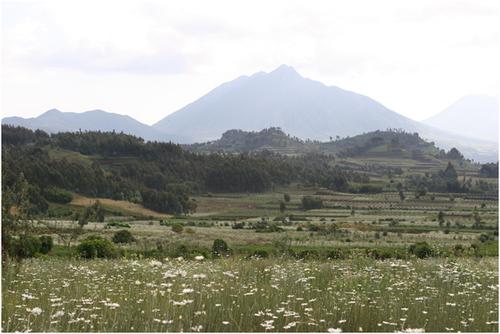当前位置:
X-MOL 学术
›
Am. J. Primatol.
›
论文详情
Our official English website, www.x-mol.net, welcomes your feedback! (Note: you will need to create a separate account there.)
De‐colonizing conservation in a global world
American Journal of Primatology ( IF 2.4 ) Pub Date : 2021-03-25 , DOI: 10.1002/ajp.23258 Annette Lanjouw 1
American Journal of Primatology ( IF 2.4 ) Pub Date : 2021-03-25 , DOI: 10.1002/ajp.23258 Annette Lanjouw 1
Affiliation

|
Humans form an integral part of most ecosystems on earth. To prevent habitat and species loss and destruction, social justice must, therefore, be at the core of conservation efforts. Traditional conservation education approaches focus on building knowledge, skills, and awareness amongst local communities with the hope of leading to behavior change resulting in the protection of species and ecosystems. The principal drivers of threats to these ecosystems, however, are often not the local people but rather the interests of industry, governments and consumers in distant places. To mitigate and abate the threats to ecosystems, conservation approaches must be both localized and decolonized, including on all the relevant stakeholders. This starts by ensuring that industry, government, and financing institutions have the skills and incentives to avoid harm to the people, wildlife, and ecosystems they exploit, and ensuring that local and indigenous communities are not only informed, but much more engaged in leading the activities that affect them or their land/resources. Essentially, it is the behavior of the global community that must change with respect to the consumption, utilization, and extraction of tropical forest resources and conservation targets must reflect this. Conservation can only be successful when the threats to ecosystems are adequately understood and local people are part of the design and leadership of conservation efforts. This commentary provides specific examples of how conservation education can focus on the drivers of threats, building expertize in the relevant audiences and partners.
中文翻译:

全球化世界中的去殖民化保护
人类是地球上大多数生态系统不可或缺的一部分。因此,为了防止栖息地和物种的丧失和破坏,社会正义必须成为保护工作的核心。传统的保护教育方法侧重于在当地社区中建立知识、技能和意识,以期导致行为改变,从而保护物种和生态系统。然而,这些生态系统面临威胁的主要驱动因素往往不是当地人民,而是远方的工业、政府和消费者的利益。为了减轻和减轻对生态系统的威胁,保护方法必须本地化和非殖民化,包括所有相关利益相关者。这首先要确保行业、政府、和融资机构有技能和激励措施来避免对其所开发的人类、野生动物和生态系统造成伤害,并确保当地和土著社区不仅了解情况,而且更多地参与领导影响他们或他们的土地/资源的活动. 本质上,全球社会在热带森林资源的消费、利用和开采方面的行为必须改变,保护目标必须反映这一点。只有充分了解生态系统面临的威胁并且当地人民参与到保护工作的设计和领导中,保护工作才能成功。本评论提供了具体示例,说明保护教育如何关注威胁的驱动因素,在相关受众和合作伙伴中建立专业知识。野生动物和他们利用的生态系统,并确保当地和土著社区不仅了解情况,而且更多地参与领导影响他们或他们的土地/资源的活动。本质上,全球社会在热带森林资源的消费、利用和开采方面的行为必须改变,保护目标必须反映这一点。只有充分了解生态系统面临的威胁并且当地人民参与到保护工作的设计和领导中,保护工作才能成功。本评论提供了具体示例,说明保护教育如何关注威胁的驱动因素,在相关受众和合作伙伴中建立专业知识。野生动物和他们利用的生态系统,并确保当地和土著社区不仅了解情况,而且更多地参与领导影响他们或他们的土地/资源的活动。本质上,全球社会在热带森林资源的消费、利用和开采方面的行为必须改变,保护目标必须反映这一点。只有充分了解生态系统面临的威胁并且当地人民参与到保护工作的设计和领导中,保护工作才能成功。本评论提供了具体示例,说明保护教育如何关注威胁的驱动因素,在相关受众和合作伙伴中建立专业知识。但更多地参与领导影响他们或他们的土地/资源的活动。本质上,全球社会在热带森林资源的消费、利用和开采方面的行为必须改变,保护目标必须反映这一点。只有充分了解生态系统面临的威胁并且当地人民参与到保护工作的设计和领导中,保护工作才能成功。本评论提供了具体示例,说明保护教育如何关注威胁的驱动因素,在相关受众和合作伙伴中建立专业知识。但更多地参与领导影响他们或他们的土地/资源的活动。本质上,全球社会在热带森林资源的消费、利用和开采方面的行为必须改变,保护目标必须反映这一点。只有充分了解生态系统面临的威胁并且当地人民参与到保护工作的设计和领导中,保护工作才能成功。本评论提供了具体示例,说明保护教育如何关注威胁的驱动因素,在相关受众和合作伙伴中建立专业知识。热带森林资源的开采和保护目标必须反映这一点。只有充分了解生态系统面临的威胁并且当地人民参与到保护工作的设计和领导中,保护工作才能成功。本评论提供了具体示例,说明保护教育如何关注威胁的驱动因素,在相关受众和合作伙伴中建立专业知识。热带森林资源的开采和保护目标必须反映这一点。只有充分了解生态系统面临的威胁并且当地人民参与到保护工作的设计和领导中,保护工作才能成功。本评论提供了具体示例,说明保护教育如何关注威胁的驱动因素,在相关受众和合作伙伴中建立专业知识。
更新日期:2021-03-25
中文翻译:

全球化世界中的去殖民化保护
人类是地球上大多数生态系统不可或缺的一部分。因此,为了防止栖息地和物种的丧失和破坏,社会正义必须成为保护工作的核心。传统的保护教育方法侧重于在当地社区中建立知识、技能和意识,以期导致行为改变,从而保护物种和生态系统。然而,这些生态系统面临威胁的主要驱动因素往往不是当地人民,而是远方的工业、政府和消费者的利益。为了减轻和减轻对生态系统的威胁,保护方法必须本地化和非殖民化,包括所有相关利益相关者。这首先要确保行业、政府、和融资机构有技能和激励措施来避免对其所开发的人类、野生动物和生态系统造成伤害,并确保当地和土著社区不仅了解情况,而且更多地参与领导影响他们或他们的土地/资源的活动. 本质上,全球社会在热带森林资源的消费、利用和开采方面的行为必须改变,保护目标必须反映这一点。只有充分了解生态系统面临的威胁并且当地人民参与到保护工作的设计和领导中,保护工作才能成功。本评论提供了具体示例,说明保护教育如何关注威胁的驱动因素,在相关受众和合作伙伴中建立专业知识。野生动物和他们利用的生态系统,并确保当地和土著社区不仅了解情况,而且更多地参与领导影响他们或他们的土地/资源的活动。本质上,全球社会在热带森林资源的消费、利用和开采方面的行为必须改变,保护目标必须反映这一点。只有充分了解生态系统面临的威胁并且当地人民参与到保护工作的设计和领导中,保护工作才能成功。本评论提供了具体示例,说明保护教育如何关注威胁的驱动因素,在相关受众和合作伙伴中建立专业知识。野生动物和他们利用的生态系统,并确保当地和土著社区不仅了解情况,而且更多地参与领导影响他们或他们的土地/资源的活动。本质上,全球社会在热带森林资源的消费、利用和开采方面的行为必须改变,保护目标必须反映这一点。只有充分了解生态系统面临的威胁并且当地人民参与到保护工作的设计和领导中,保护工作才能成功。本评论提供了具体示例,说明保护教育如何关注威胁的驱动因素,在相关受众和合作伙伴中建立专业知识。但更多地参与领导影响他们或他们的土地/资源的活动。本质上,全球社会在热带森林资源的消费、利用和开采方面的行为必须改变,保护目标必须反映这一点。只有充分了解生态系统面临的威胁并且当地人民参与到保护工作的设计和领导中,保护工作才能成功。本评论提供了具体示例,说明保护教育如何关注威胁的驱动因素,在相关受众和合作伙伴中建立专业知识。但更多地参与领导影响他们或他们的土地/资源的活动。本质上,全球社会在热带森林资源的消费、利用和开采方面的行为必须改变,保护目标必须反映这一点。只有充分了解生态系统面临的威胁并且当地人民参与到保护工作的设计和领导中,保护工作才能成功。本评论提供了具体示例,说明保护教育如何关注威胁的驱动因素,在相关受众和合作伙伴中建立专业知识。热带森林资源的开采和保护目标必须反映这一点。只有充分了解生态系统面临的威胁并且当地人民参与到保护工作的设计和领导中,保护工作才能成功。本评论提供了具体示例,说明保护教育如何关注威胁的驱动因素,在相关受众和合作伙伴中建立专业知识。热带森林资源的开采和保护目标必须反映这一点。只有充分了解生态系统面临的威胁并且当地人民参与到保护工作的设计和领导中,保护工作才能成功。本评论提供了具体示例,说明保护教育如何关注威胁的驱动因素,在相关受众和合作伙伴中建立专业知识。

























 京公网安备 11010802027423号
京公网安备 11010802027423号